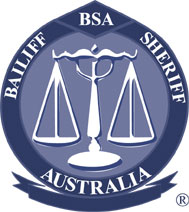Ombudsman tracks surge in small businesses fearing non-payments
NEW FIGURES from the Australian Small Business and Family Enterprise Ombudsman reveal a 50 percent jump in requests for help from distressed business owners who are fearful that another business that owes them money has become insolvent – or who are worried about their own ability to meet their financial commitments.
The Ombudsman, Bruce Billson, said payment disputes were an early warning sign of a cash flow problem and can have a ripple effect that threatens the viability of other businesses.
“Cash flow is the oxygen of enterprise, but difficult conditions mean when one party is late in paying, it can cascade through the supply chain,” Mr Billson said. 
“Payment disputes are by far the greatest area of concern for small and family businesses and now account for 42 percent of assistance cases, up from 36 percent last year.
“The construction industry had the highest number of payment disputes, while in the hospitality area the number has tripled over the past 12 months.”
Requests for help up 10%
Releasing the annual summary of assistance provided to small and family businesses by the Ombudsman, Mr Billson said there were 6254 requests for assistance in 2023-24, up 10 percent from the previous year.
The data, published in the Ombudsman’s latest Quarterly Report, shows that since being created eight years ago, ASBFEO has handled almost 47,000 cases, most of which involve disputes small businesses have with other businesses or Australian Government agencies.
“We strive to help small businesses get back to business as fast as possible and pleasingly nearly two-thirds of the cases that come to us are helped quickly by our call centre or assistance team providing useful information and guidance to resolve disputes,” Mr Billson said.
“Some cases take longer and the ASBFEO assistance team provide more intense one-to-one assistance with no-cost or low-cost solutions. This has included arranging alternative dispute resolution, such as mediation.”
Insolvency help is up 50%
The number of requests for help with insolvency increased by 50 percent. These included people considering insolvency and those concerned that an insolvent business owed them money.
“Over the past year, small and family business owners have become increasingly worried about being paid as they face challenging business conditions which has seen a record number of corporate insolvencies,” Mr Billson said.
“Cost of living pressures for households are cost of doing business pressures for small businesses such as rising input costs such as wages, energy, insurance and rent while the Tax Office (ATO) has resumed its tougher enforcement approach.
“Many small businesses are drawing on their cash buffers to keep their business afloat. Recent surveys have found nearly one-in-four have no cash reserves while 18 percent have less than a month’s cash at hand to fulfil their obligations,” Mr Billson said.
“The business owner will usually pay themselves last after paying their bills and staff, so slow payment can needlessly amplify the risks of business ownership.
“For small and family business owners, their identities are interwoven into their business and the stakes are so much higher than just a job. Many have invested a lifetime – and put their life’s savings and family home on the line – to build up their business. Nearly half of outstanding small business debts are secured by residential property.
“New figures from the Tax Office reveal that 46 percent of small businesses did not make a profit in the most recent year of accounts available. And some three-quarters of self-employed business owners, for whom their business is their full-time livelihood endeavour, are earning less than the average total weekly, full-time wage.”
Big Tech digital disputes on increase
Mr Billson said small businesses were also crying out for help dealing with Big Tech digital platform providers and disputes involving a digital service now accounted for just over one-in-four new cases.
“The number of cases we’ve seen involving a small business having problem with a digital platform has more than doubled since July 2022,” Mr Billson said.
“Digital platforms have fundamentally changed the way small businesses connect and sell to their customers. Yet, when there is a problem – such as having your account shut down after being hacked – solving it can be a nightmare.
“In too many cases, when there is a problem, the digital platform providers require a time and resource-poor small business to navigate the most elaborate maze of dead-ends and blockages,” he said.
“We have been active in directly seeking resolutions for small and family businesses but some of the delays experienced by small businesses have lasted many months and having someone else access and control their account is devastating for their business and their reputation.
“We are calling for digital platform providers to implement clear, appropriate and standardised procedures for small business dispute resolution with clear escalation points and a real person to talk to.”
About 20 percent of requests for assistance relate to contract disputes while 9 percent involve a franchise disagreement, typically relating to contract renewals, breach of franchise agreement or early termination.
“We can give small businesses the skills – and sometimes case management – to resolve a dispute without ending the business relationship. In many cases they want to keep doing business but need to find a way through the dispute,” Mr Billson said.
“We can’t guarantee that every small business will succeed but it is our mission to provide all the help we can for those who want to start, grow or transform a business, and that no business fails because the owners didn’t know about something that might have helped.
“We also provide access to mental health support and tools to help people start and grow a business and make better business decisions. We also offer a Tax Concierge Service for small businesses who have a dispute with the Tax Office.”
Some cases such as those involving insurance, telecommunications, banking and finance, and workplace issues such as health and safety, are referred to other relevant dispute resolution agencies in line with ASBFEO’s legislation that says it is not to duplicate the functions of other government agencies.
“We happily provide a type of triage service to receive the dispute and then assess whether we are best equipped to help or whether the small business will be best served by sending their case, with their permission, to the most appropriate federal or state agency,” Mr Billson said.
Small and family businesses with a dispute can find more information and guidance on the ASBFEO website – asbfeo.gov.au – which also includes resources, check lists, tools, more information about the Tax Concierge Service and the Quarterly Report. They can also subscribe to the ASBFEO newsletter.
CASE STUDIES
THE ASBFEO has provided a range of case studies (names have been changed for privacy) that illustrate the current ‘mission-critical’ challenges facing small businesses in Australia.
MARY runs a small civil construction business but one of her customers, another small business, had not paid their $20,000 bill for 180 days.
The delay, well beyond the usual payment terms of 30 days, was having significant flow-on consequences for Mary as it left her without sufficient cash flow to pay her suppliers.
After repeated attempts to contact the company that owed her money and even offering a payment plan because she wanted to keep the other business as an ongoing customer, Mary called the ASBFEO assistance team. A case manager helped Mary to be paid the full amount she was owed.
JULIE uses a well-known social media digital platform to run her small business, but she was hacked and locked out of her account.
The hackers used Julie’s credit card that was linked to the account to fraudulently ring up hundreds of dollars of charges. Julie was left stranded because the digital platform told her she needed to log in to her account to report that she was locked out of her account.
Julie is one of hundreds of small business owners who have faced this problem over the past year and, after contacting ASBFEO, we were able to get her account re-instated and the fraudulent charges on her credit card refunded.
STEVEN's account was suspended by a digital platform with no reason given. Steve said without access he could lose $20,000 in sales and repeatedly requested a review but was not able to get his account re-instated. He contacted ASBFEO and we convinced the digital platform to undertake another review and it found he had been suspended by mistake and the account was re-instated.
VICKY, who runs an events business, was owed $10,000 by another business who had stopped paying her and had cut off any communication. She called ASBFEO and we provided advice which got the two businesses talking again and they were able to work out a payment plan and preserve their commercial arrangement.
ANTHONY runs his own TV repair business and contacted ASBFEO when another business he had been working with for five years, suddenly stopped paying him. We helped negotiate a payment plan so both businesses could stay in business.
MATTHEW took out a loan with a lender who was not a member of the Australian Financial Complaints Authority, so he could pay other debts owed by his small business. After defaulting on the loan, he was at risk of losing his home and contacted ASBFEO. We discovered he had already paid more in loan repayments than the total loan. The lender agreed to waive the remaining debt and remove the security over the home. Before taking out any new loans, Matthew said that he’ll do the quick online check to ensure that a lender is an AFCA member.
ends

 How to resolve AdBlock issue?
How to resolve AdBlock issue?  Recommendations include waiving interest and penalties for a first offence, restricting ATO review and audit periods to one year when a small business is using an accredited tax or BAS agent and immediately ceasing debt recovery action against a small business that is seeking a review of its tax position, regardless of whether the dispute is before the AAT.
Recommendations include waiving interest and penalties for a first offence, restricting ATO review and audit periods to one year when a small business is using an accredited tax or BAS agent and immediately ceasing debt recovery action against a small business that is seeking a review of its tax position, regardless of whether the dispute is before the AAT.



 BAILIFF-SHERIFF Australia is an informational website developed by Vale Patrick Asange, long-serving senior bailiff for Brisbane Magistrates Court, supported by Business Acumen magazine.
BAILIFF-SHERIFF Australia is an informational website developed by Vale Patrick Asange, long-serving senior bailiff for Brisbane Magistrates Court, supported by Business Acumen magazine.